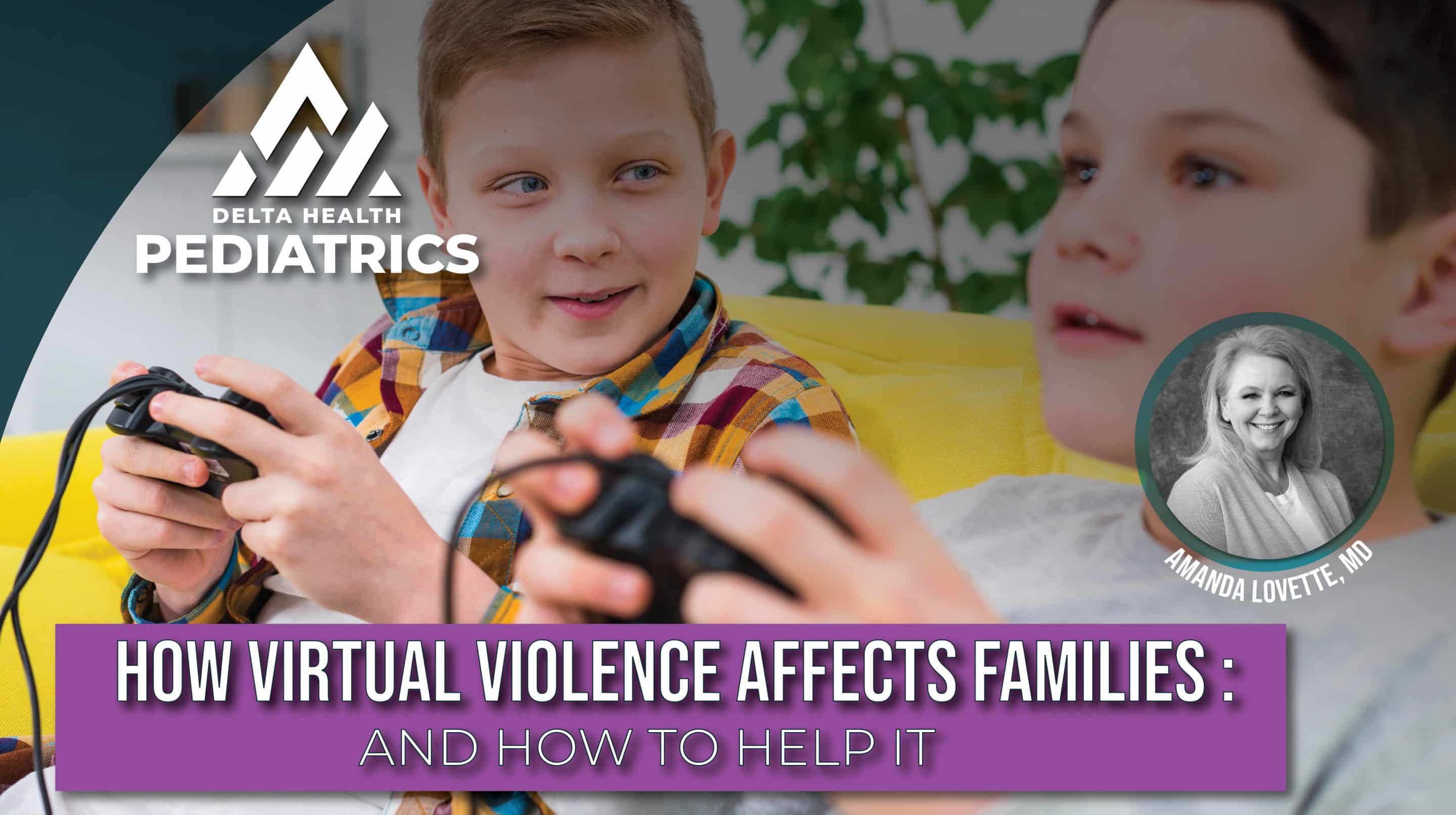By: Dr. Amanda Lovette, Pediatrician
Delta Health Pediatrics
Much has been said about virtual violence. Some experts say that violent acts of aggression that our families view on video games, news stories, cartoons or movies can cause lasting effects. Parents and caretakers often wonder how the viewing of this material may affect their children and families.
We know it is generally considered not good for children to view these types of violent actions on a routine basis. Children tend to become more aggressive when exposed to more frequent and violent images. They may speak more aggressively and they may think more aggressive especially if they see violence in their home environment at times. These children are also more at risk or mental health issues like depression and anxiety. Studies done in the 80s by a group of psychologists showed that children who watched violent images when they were eight years old tended to have higher levels of aggressive behaviors as teenagers and were more likely to be prosecuted for criminal acts as adults.
No one wants this for their child. But violence is everywhere in the media. How do parents avoid it?
- Minimize TV and video games usage for children. Even cartoonish violence is real to young children who cannot distinguish fantasy from reality. Don’t panic if your child views violence a few times in a week – they are unlikely to have lasting negative effects. It is the continual exposure to violent media images that is more harmful to children.
- If they must watch TV, monitor and watch TV with them so that you can see what they are seeing, and discuss these images with them if they are old enough to understand.
- Turn off the TV if the images are tending towards violence.
- Talk to your children about the violent media images they have seen, and let them talk through their feelings and start to learn the difference between reality and lack thereof violent imagery in movies and games.
- Use the rating services that are made to help parents choose wisely about the violent content of the media they are considering for their children to view.
- The Entertainment Software Rating Board (ESRB) is a great source of information when considering which video games are appropriate for your child.
- Common Sense Media is another source that is excellent for reviewing the latest movies, TV shows and even books for violent media content.
It can be a difficult subject to navigate as a parent, but there are tools and resources to help parents choose what is best for their family.
If you have more questions on this topic, or are looking for a pediatrician, contact Delta Health Pediatrics at 970.546.4000 or deltahealthco.org.


